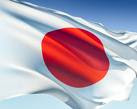 Like China, Japan was compelled by the gun boat diplomacy of foreign powers to open its doors to outside influences and trade. Japan went through a period of rapid social and economic change from the Meiji Restoration (1864-1868) onwards, which saw Japan adopting European models of military warfare, government, education, economics, banking, and social appearance and habits, while retaining its core Confucian values.
Like China, Japan was compelled by the gun boat diplomacy of foreign powers to open its doors to outside influences and trade. Japan went through a period of rapid social and economic change from the Meiji Restoration (1864-1868) onwards, which saw Japan adopting European models of military warfare, government, education, economics, banking, and social appearance and habits, while retaining its core Confucian values.Samurai Caste System
While superficial changes may have occurred, the fundamental aspirations of an expansionist ruling military caste had not. Ultimately it was the pursuit of those ambitions that led to Japan’s defeat and near annihilation in 1945. A combination of social and economic factors, together with the latent narcissism of the Samurai caste system, was manipulated to produce an ill-conceived war.
As Japan struggled to recover from the desolation and ruin of war, supported by the opportunity to redevelop its industrial base afforded by the Korean War, there was a widespread disaffection among the Japanese people with all things Samurai. Increasingly, the Japanese looked to America as a role model of a more open, democratic society. From the late 1950’s Japan went through an extremely rapid period of economic growth, which lasted up until the 1990’s when it began to slow down.
Political Stability
In recent times, partly as a result of increased opportunities for leisure that has come with prosperity and an economic slow down, Japanese youth seem to have rediscovered their past, and there is some evidence of a resurgence of interest in traditional culture and values, but tinged with a more liberal and modern sensibility. While it is unlikely that there will be any reconciliation between conservative and liberal elements in Japan, each acts as a break upon the excesses of the other, which helps to maintain a level of political stability. Read More






No comments:
Post a Comment